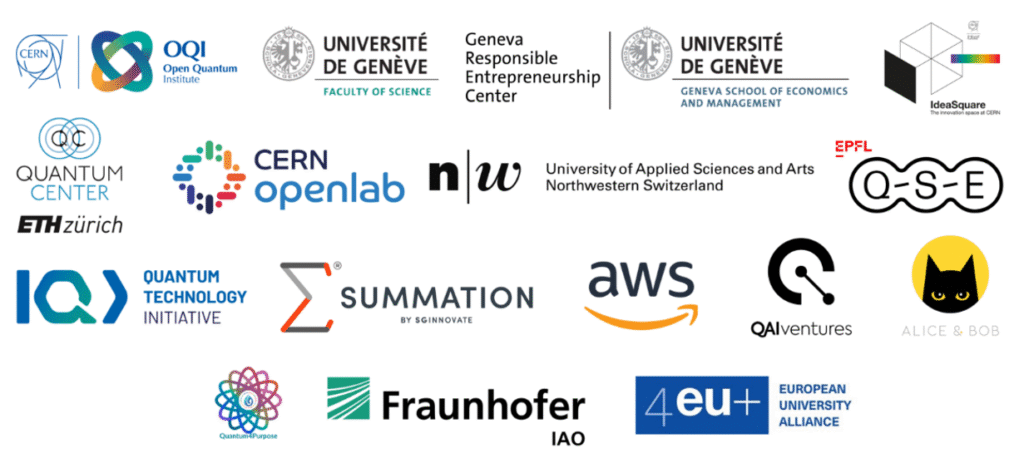From zero to quantum hero: my experience at the Quantum Material Hackathon
13th August 2025
Article by Othman Alabed

Getting accepted into the CERN Summer Student Programme was a dream come true – a once-in-a-lifetime opportunity to dive headfirst into the world of frontier science. I was already thrilled to be surrounded by some of the brightest minds in physics and computing, when another opportunity landed in my inbox: the Quantum Computing & Materials Hackathon, co-hosted hosted by the Open Quantum Institute (OQI) and the University of Geneva (Geneva Responsible Entrepreneurship Center).
What was the Quantum Material Hackathon about?
The hackathon gave us the opportunity to explore how quantum computing could be utilised to design novel quantum materials and how these materials can contribute towards the UN Sustainable Development Goals (SDGs), aligning with OQI’s overall mission. To achieve this, hackathon participants were tasked with creating a practical application document detailing how they would approach developing a quantum algorithm to design such a material, with the potential to be refined further beyond the hackathon.
To be or not to be?
I was originally on the roster as an organiser – coordinating logistics, schedules and team check‑ins. When one of the members of Team 1 didn’t show up on the first day, I first requested and secured permission from management to step in. Then, midway through the event on day 2, I slipped on my “participant” hat, filled the vacant spot, and dove into algorithm design and implementation. That spontaneous pivot not only kept our project on track, but also gave me a front‑row seat to the thrill of hands‑on quantum problem‑solving under tight deadlines. It was a powerful reminder that adaptability and teamwork are just as critical to innovation as any line of code.
The Challenge?
Our technical challenge – officially “Challenge 1: Water Splitting for Hydrogen Production,” created by ETH Zürich’s Quantum Centre – focused on using quantum computing to accelerate the discovery of an alternative to platinum catalysts. Water splitting is an environmentally friendly route to produce hydrogen, a clean-burning fuel critical for SDG 7 (Affordable and Clean Energy) and SDG 13 (Climate Action). Traditional approaches rely on costly, scarce and toxic platinum, whereas materials like graphene doped with abundant, low‑cost elements (or other novel substrates) show promise but are prohibitively expensive to screen classically. By simulating catalytic active sites on a quantum processor, our team aimed to predict candidates with comparable efficiency and stability, demonstrating how quantum algorithms can break through the computational barriers of sustainable energy materials design.
48 Hours of Quantum Grit: From Code to Catalyst
Over an intense 48 hours, our team dove into writing and refining quantum algorithms to screen next‑generation water‑splitting catalysts. We worked around the clock, building code pipelines and running repeated simulations on our laptops – even though they could only emulate a handful of qubits. Each test exposed the limits of classical emulation, but we improvised workarounds, optimised subroutines, and squeezed out every last cycle of performance. Between debugging sessions, we pitched our progress multiple times, sharpening our presentation on sustainable hydrogen production. That non-stop sprint of collaboration and problem‑solving showed that sheer determination can push beyond laptop constraints to deliver real quantum‑driven insights.
Team 1 lives up to its name
We were thrilled when Team 1 was announced as the winner of the hackathon, with our “Quantum Catalyst” framework. The judges highlighted how our approach systematically defines candidate materials whose activity, stability, and cost profiles closely mirror those of platinum for water splitting. Even though all our simulations ran on standard laptops, our pipeline – combining quantum‑inspired modelling with classical validation – stood out for its rigor and scalability. From our first nervous pitch to the final demo, every iteration of that framework and every late‑night tweak paid off. Standing atop that virtual podium, it was clear that our blend of cutting‑edge methodology and relentless teamwork had made all the difference.


